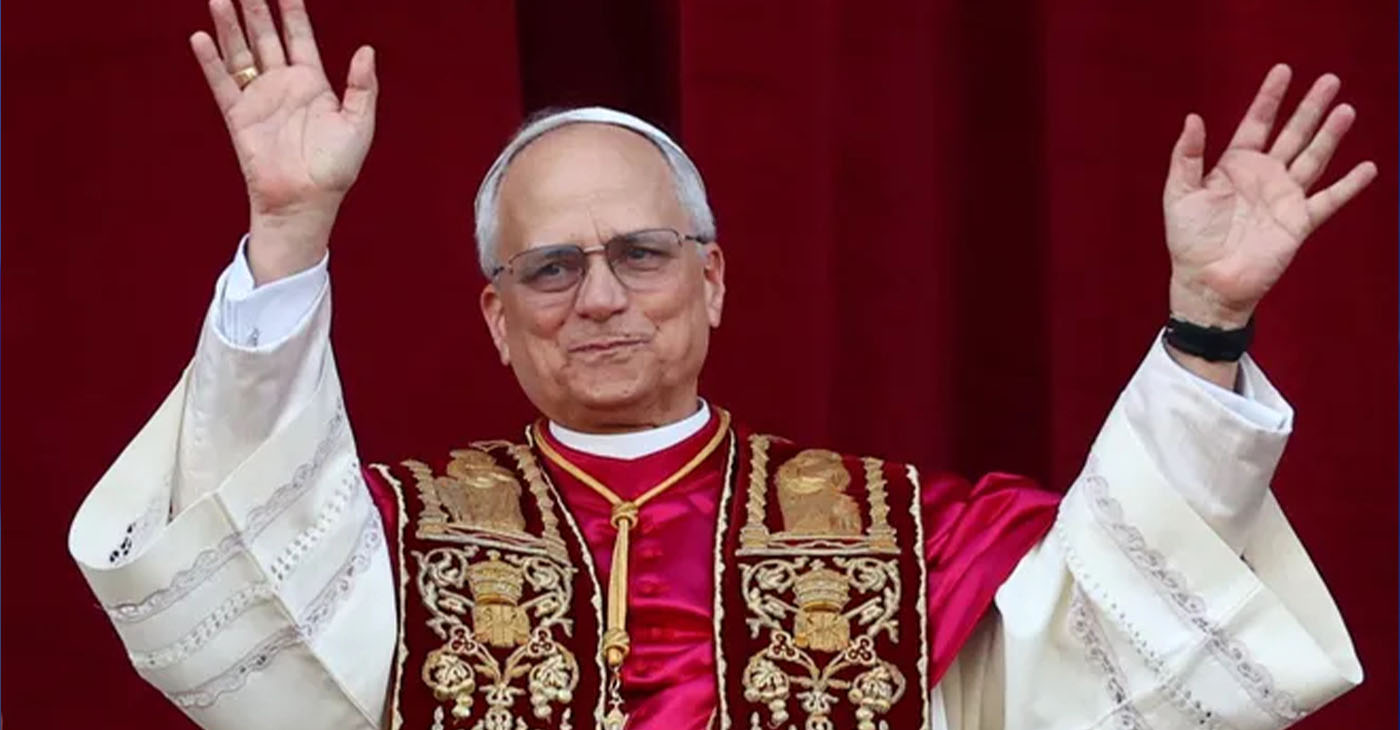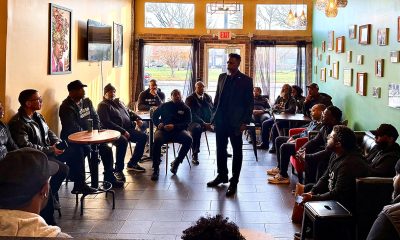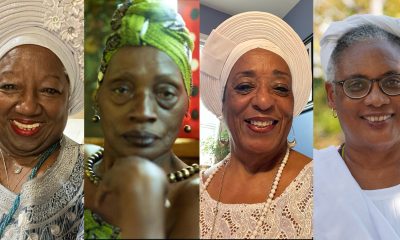World
Former Boko Haram Captives Still Held by Nigerian Military

In this Saturday May 2, 2015 file photo, women and children rescued by Nigeria soldiers from Islamist extremists at Sambisa forest arrive at a camp for the displaced people in Yola, Nigeria. All 275 women, girls and children rescued from Boko Haram and taken to the safety of a northeast Nigerian refugee camp have been taken into military custody amid suspicions that some are aiding the Islamic extremists, a camp official and a Nigerian military intelligence officer said Wednesday May 20, 2015. (AP Photo/Sunday Alamba, File)
MICHELLE FAUL, Associated Press
IBRAHIM ABDULAZIZ, Associated Press
YOLA, Nigeria (AP) — The accusations against a woman who was rescued from Boko Haram abductors came from fellow former captives during a group counseling session.
Why had she received preferential treatment and better food while they were held? Wasn’t she married to a fighter from the Islamic extremist group?
As scores of young Nigerian women and children are rescued from the clutches of Boko Haram, they face suspicions that they may still be in contact with their former captors.
These fears apparently have led to an entire group of 275 women and girls rescued from the extremists last month being forced to remain in custody — held this time by the Nigerian military.
The Defense Ministry spokesman, Maj. Gen. Chris Olukolade, claimed Thursday that they were moved to get “proper medical attention and psycho-social therapy” under a program organized by the national security adviser. Olukolade was quoted by PR Nigeria, an agency that puts out Nigerian government news.
One of the trauma counselors who had been working with the women said the group had nearly completed their therapy and camp officials had been preparing to reunite some with their families, before the military took them.
After creating havoc in northeastern Nigeria for years, Boko Haram militants have suffered a series of defeats this year from an offensive by better-equipped Nigerian troops bolstered by forces from neighboring Chad, Niger and Cameroon.
As the militants retreat, the many captives they seized are being rescued, but that doesn’t mean their ordeal is over. Many remain traumatized by their harsh captivity — including rape, sexual slavery and beatings — as well as suspicions that some cooperated with their captors and may still support them.
In counseling sessions at the Malkohi Camp outside the northeastern city of Yola, witnesses described some women accusing another one of having ties to their former Boko Haram captors.
Relations between soldiers guarding the camp and some of the rescued women had been tense after a fracas witnessed May 17 by a reporter in which a soldier falsely claimed that one of the women tried to grab his gun and told him she was a Boko Haram member.
On Tuesday, soldiers took the group of more than 200 children — almost all younger than 5 — and 67 girls and women from the camp, the National Emergency Management Agency has confirmed.
Agency spokesman Sani Datti said he had no other information because it was an “entirely military affair.”
The group was put on a military plane and flown to an unknown destination, possibly the capital of Abuja, a camp official and a military intelligence officer told The Associated Press on condition of anonymity because they were not authorized to talk to the media about the issue.
Their move from the camp only became known after an AP story about the heroism of one teenager, Binta Ibrahim, prompted two readers to send $500 to her. An AP reporter who went to the camp to find out how to get the money to her discovered the group was no longer there.
It is not known how many girls, women and children have been kidnapped by Boko Haram over the years. Many have escaped and Nigerian troops reported freeing some 700 last month since the multinational offensive chased the militants from towns in the northeast. Some of the girls and women were used by the militants as suicide bombers, sending them into crowded markets and bus stations.
The president of the International Committee of the Red Cross, Peter Maurer, expressed alarm Thursday at the scale of the humanitarian needs and “the horrific mental and physical scars” that the violence by Boko Haram has left on the people of northeast Nigeria.
“Whole communities have fled their villages and endured unimaginable suffering. Traumatized people, without homes, belongings, income and education for their children — what does the future hold for them?” Maurer said, adding that the needs were far beyond the capacity of his Geneva-based organization and demand serious international attention.
Boko Haram abducted nearly 300 schoolgirls from the northeastern town of Chibok in April 2014. Dozens escaped, but 219 remain missing. The plight of the schoolgirls, who have become known as “the Chibok girls,” sparked international outrage.
A counselor who worked with the rescued group at Malkohi said they told him that Christians among the captives had been forced by Boko Haram to convert to Islam, and some were forced to marry fighters. At least 18 are pregnant.
One 22-year-old told him she was paid a dowry of 500 naira — the equivalent of $2.30 — to marry an insurgent.
Others said they were treated like “slaves,” forced to do domestic work and whipped if they disobeyed. One showed the counselor her back, covered with scars.
But the counselor said the only person who had openly supported Boko Haram was a 4-year-old boy whose mother and father belonged to the group. He said he feared for the boy’s life and had had officials remove him from the camp.
The child openly boasted that his father would slit people’s throats and gun them down, saying that the killing of infidels was the work of God, according to the counselor, who spoke on condition of anonymity because he was not authorized to talk to reporters about the sensitive subject.
He said the entire group was traumatized and all the rescued children were badly malnourished. A 2-year-old died May 3, the day after the group reached the safety of the camp, he added.
Their rescue was a success story for Nigeria’s military.
When they came to the camp, those rescued told AP heartbreaking stories of their captivity and the trauma of their rescue. Boko Haram fighters stoned several women to death when they refused to flee with them as the military advanced on their position. Others were crushed accidentally by an armored military vehicle, and three women were killed by a land mine.
Binta Ibrahim, who was praised for her heroism, told how at the age of 16 she rescued three children between the ages of 2 and 4, cared for them during a year of captivity under Boko Haram, and brought them to the safety of the refugee camp.
Samantha Power, the U.S. ambassador to the United Nations, was so moved by Ibrahim’s story that she cited her during a commencement address at the University of Pennsylvania this week.
“Binta is a Muslim. The three kids she saved are Christian. Tell me a more powerful rejection of Boko Haram’s perversion of Islam than Binta’s love for those kids,” Power said.
Now, the fate of Ibrahim and others rescued is uncertain.
The Nigerian military and intelligence services have faced criticism over their treatment of the thousands of suspected Boko Haram members or supporters that they have detained over the nearly 6-year-old insurgency.
More than 3,000 male detainees died during a period of a few months at Giwa Barracks in the northeastern city of Maiduguri in 2013, according to an AP investigation. Amnesty International said some starved to death, some suffocated in overcrowded conditions, and some were simply taken out and shot.
___
Faul reported from Lagos, Nigeria. Associated Press writer Frank Jordans in Geneva contributed to this report.
Copyright 2015 The Associated Press. All rights reserved. This material may not be published, broadcast, rewritten or redistributed.
Activism
African Union Group to Award Rev. Dr. Amos Brown for Bringing Civil Rights Movement to Global Stage
Dr. Macaulay Kalu, secretary general of AU6RG, will present Dr. Brown with the Global Peace Builder Award. Other presenters include Rev. Dr. Freddie Haynes, senior pastor of Friendship West Baptist Church in Dallas; Oakland Mayor Barbara Lee, long-time advocate for appropriations to Africa as a congressmember; Rick Callendar, California-Hawaii president of the NAACP; Dr. Ike Neliaku, president and chairman of the Nigerian Institute of Public Relations; Pastor Ituah Ighodalo, head of the African Leadership Group and Ambassador Thompson and John William Templeton, founder of the Journal of Black Innovation National Black Business Month®.

By Carla Thomas and John William Templeton
On Aug. 31, the Third Baptist Church of San Francisco will mark its 173rd anniversary with an event steeped in history and global significance. This year’s commemoration, themed “Achieving Dr. King’s Promised Land Together,” will honor the lifelong achievements of Dr. Amos C. Brown, Sr.— a towering figure in the Civil Rights Movement — on a day that also observes the International Day for People of African Descent.
Brown will be recognized by the African Union’s organ for Africans abroad for ‘planetizing’ the civil rights movement gains at San Francisco’s Third Baptist Church, 1399 McAllister St., at 3 p.m.
The African Union, made up of 54 countries on the African continent, consists of five regions. It created a sixth region, the African Union Sixth Region Global (AU6RG), for the 400 million Africans living abroad. On Sept. 7, the second AU-Caribbean Community Summit occurs in Addis Ababa, Ethiopia.
Dr. Macaulay Kalu, secretary general of AU6RG, will present Dr. Brown with the Global Peace Builder Award. Other presenters include Rev. Dr. Freddie Haynes, senior pastor of Friendship West Baptist Church in Dallas; Oakland Mayor Barbara Lee, long-time advocate for appropriations to Africa as a congressmember; Rick Callendar, California-Hawaii president of the NAACP; Dr. Ike Neliaku, president and chairman of the Nigerian Institute of Public Relations; Pastor Ituah Ighodalo, head of the African Leadership Group and Ambassador Thompson and John William Templeton, founder of the Journal of Black Innovation National Black Business Month®.
Held during the 173rd anniversary of the church, the event called “Africa-America: Achieving Dr. King’s Promised Land Together” is a Diaspora-wide discussion led by Dr. Brown on what Martin Luther King, Jr. would say today.
Galvanized by the horrific 1955 slaying of Emmett Till, Dr. Brown’s journey in activism began in Jackson, Mississippi, where a neighbor, Medgar Evers, the NAACP’s first field secretary in that state, encouraged Brown to found the Mississippi NAACP Youth Council.
In 1956, Evers personally drove Brown to the NAACP convention in San Francisco, where Brown would first hear Dr. Martin Luther King Jr. speak. Brown became a prominent Freedom Rider, later attending Morehouse College and taking the only class Dr. King ever taught there. Thirteen years after Evers was assassinated in Jackson, Brown arrived at Third Baptist Church in 1976, serving with distinction for 49 years before his recent retirement. Under his stewardship, the church solidified its commitment to social justice and international unity.
His Excellency Rev. Ladi Peter Thompson, deputy secretary general for peace and security of AU6RG, said, “As a mentee of Medgar Evers, Freedom Rider and student of Dr. Martin Luther King Jr., Dr. Brown is the perfect authority for the young people of the Diaspora on achieving the prophetic goal that Dr. King foresaw in Memphis.”
Lady Dentaa Amoateng, founder of Grow, Unite, Build Africa (GUBA), will also announce that Dr. Brown is an honoree at the GUBA Award in Bridgetown, Barbados in November. The popular actress in Ghana and the United Kingdom will attend in person.
Dr. Lezli Baskerville, president/counsel of the National Association for Equal Opportunity in Higher Education, which includes 105 Historically Black Colleges and Universities (HBCUs) and 90 predominantly Black institutions (PBIs), invites its students, faculty, and alumni to attend or join remotely.
“HBCUs produced both Dr. King and Dr. Kwame Nkrumah and are the fountainhead for Diaspora unity,” said Baskerville.
Templeton, author of “ReUNION: State of Black Business, 22d edition,” said “Our movement will advocate the continuance of tariff-free treatment for Africa and the Caribbean; respect for African-American and African elected officials and the 13th, 14th, and 15th Amendments and the strengthening of educational and research connections across the Diaspora.”
Templeton said Black institutions have been at the forefront of defining the image of 1.5 billion Black people globally, a mission that is even more important as African youth will be the majority of the world’s young people in the coming decades.
ABOUT THIRD BAPTIST CHURCH
Founded on West Indian Emancipation Day on Aug.1, 1852, Third Baptist said in its annual report in 1858 that its sole purpose was the elimination of American chattel slavery and took an active role among the California abolitionists who convinced President Abraham Lincoln to issue the Emancipation Proclamation. The current sanctuary is constructed with wood from the Goodall Mansion, where President U.S. Grant stayed after leaving the White House, and is the last place where Dr. W.E.B. DuBois spoke before leaving for Africa in 1958.
Activism
Newsom, Pelosi Welcome Election of First American Pope; Call for Unity and Compassion
“In his first address, he reminded us that God loves each and every person,” said Newsom. “We trust that he will shepherd us through the best of the Church’s teachings: to respect human dignity, care for the poor, and wish for the common good of us all.” Newsom also expressed hope that the pontiff’s leadership would serve as a unifying force in a time of global instability.

By Bo Tefu, California Black Media
Gov. Gavin Newsom and First Partner Jennifer Siebel Newsom on May 8 issued a statement congratulating Pope Leo XIV on his historic election as the first American to lead the Catholic Church.
The announcement has drawn widespread reaction from U.S. leaders, including former House Speaker Nancy Pelosi, who called the moment spiritually significant and aligned with the values of service and social justice.
In their statement, the Newsoms expressed hope that the newly elected pope would guide the Church with a focus on compassion, dignity, and care for the most vulnerable. Newsom said he and the First Partner joined others around the world in celebrating the milestone and were encouraged by the pope’s first message.
“In his first address, he reminded us that God loves each and every person,” said Newsom. “We trust that he will shepherd us through the best of the Church’s teachings: to respect human dignity, care for the poor, and wish for the common good of us all.”
Newsom also expressed hope that the pontiff’s leadership would serve as a unifying force in a time of global instability.
“May he remind us that our better angels are not far away — they’re always within us, waiting to be heard,” he said.
Pelosi, a devout Catholic, also welcomed the pope’s election and noted his symbolic connection to earlier church leaders who championed workers’ rights and social equality.
“It is heartening that His Holiness continued the blessing that Pope Francis gave on Easter Sunday: ‘God loves everyone. Evil will not prevail,’” said Pelosi.
Activism
Retired Bay Area Journalist Finds Success in Paris with Black History Tours
In the late 90s, Stevenson finally realized her dream of living in Paris, now with her daughter. She started exploring the history of Africans in the city and would go on to teach others the same. Her business, which she named Black Paris Tours (BPT), received a significant boost when a family friend gave her a stack of cash and encouraged her to expand on the knowledge that she had only started to share with people she knew.

By Post Staff
There were two things Oakland-born, East Palo Alto-raised Ricki Stevenson always dreamed of:
- Going to New York as a newscaster to tell the true story of Blacks in America.
- Living and working in Paris one day.
Her dreams of life in Paris began when she was three years old and her mother, a former professional dancer, took her to see Josephine Baker perform. She was 11 when her parents took her to the Stanford University campus to meet James Baldwin, who was speaking about his book, “The Fire Next Time.” Ricki says that’s when she knew she’d one day live in Paris, “the city of light!”
But before that would ever happen, she had a tumultuous career as a newscaster across the country that was inspired by her family’s history.
Stevenson recalls marching with Cesar Chavez as he fought for labor rights for farm workers in California.
“Are we Mexican too?” she asked her parents. “No, but we will fight for everyone’s human rights,” they responded to her.
Ironically, Ricki’s paternal family roots went back to Greenwood, Oklahoma, infamous for the 1921 bombing of Black Wall Street. A time when Black people had oil wells, banks, and a thriving business community.
This background would propel her into a 25-year journalism career that gave her the opportunity to interview greats like President Jimmy Carter, PLO leader Yassir Arafat, James Baldwin, Rev. Jesse Jackson, UN Ambassador Andrew Young, Miriam Makeba, and the leaders of South African liberation movements.
A job offer from KCBS radio brought her back to the Bay Area in the 1980s. Then came the switch to TV when she was hired as a Silicon Valley business reporter with KSTS TV, working at the first Black-owned television station in northern CA (created and owned by John Douglas). Along the way, Stevenson worked as an entertainment reporter with BET; coproduced, with her disc jockey brother Isaac, a Bay Area show called “Magic Number Video;” lived in Saudi Arabia; worked as an international travel reporter with News Travel Network; and worked at KRON TV a news anchor and talk show host.
In 1997, Stevenson realized her dream of living in Paris with her young daughter, Dedie. She started exploring the history of Africans in the city and would go on to teach others the same. Her business, which she named Black Paris Tours (BPT), received a significant boost when a family friend, Admiral Robert Toney put a chunk of money in her hand. He said, “Ricki, my wife and I have been coming to Paris for 20 years, but in just two days with you and Dedie, we’ve learned and seen more than we ever did before.”
Years after BPT took off, Ricki met Nawo Carol Crawford and Miguel Overton Guerra, who she recruited as senior scholar guides for Black Paris Tours.
Guerra says he is proud of his work with Black Paris Tours in that it provides a wealth of information about the rich legacy of African and African American history and influence in Paris and Europe.
“I tend to have a feeling for history always being a means of a reference point backwards … you start to understand the history, that it isn’t just the United States, that it began with African people,” Guerra says.
He said that it’s been a pleasure to watch people learn something they didn’t know before and to take them through the city to key points in Black history, like hangout spots for writers like Baldwin and Richard Wright, restaurants in the busiest parts of Paris, the home of Josephine Baker and so much more.
Although the tours are open to all, Guerra hopes that those of African descent from all over the world can embrace that they don’t have to just stay where they are because movies and media have portrayed cities like Paris to be only white, it’s multicultural and accepting to all.
“We’ve been here, and we’ve been there, going way back when. And we shouldn’t be considered or consider ourselves to be strangers in any place that we go to,” he said.
Stevenson notes they’ve had 150,000 people take their tour over the years, with notables like former NFL quarterback Colin Kaepernick, Smokey Robinson, Steve Harvey, Miriam Makeba, and more.
Friends and former media colleagues of Stevenson compliment the BPT crew on their knowledge of the city and their ability to always keep it interesting.
“He [Guerra] just had a deep, deep wealth of knowledge and he was constantly supplanting information with historical facts and the like. I love that it was demonstrating and showing how Black people have thrived in Paris or contributed to the culture in Paris,” Candice Francis said.
She toured in the summer of 2022 and stated that in the two weeks that they visited Paris, BPT was the highlight of her trip. She shared that she was proud of Stevenson and the life she’d managed to manifest and build for herself.
“Even if you’re visiting Paris for the tenth time, if you haven’t taken the tour, then by all means, take it,” Francis emphasized.
Magaly Muñoz, Gay Plair and Paul Cobb also contributed to this story. You can book your own adventure with Black Paris Tours at www.blackparistour.com.
-

 Bay Area3 weeks ago
Bay Area3 weeks agoPost Salon to Discuss Proposal to Bring Costco to Oakland Community meeting to be held at City Hall, Thursday, Dec. 18
-

 Activism3 weeks ago
Activism3 weeks agoMayor Lee, City Leaders Announce $334 Million Bond Sale for Affordable Housing, Roads, Park Renovations, Libraries and Senior Centers
-

 Activism3 weeks ago
Activism3 weeks agoOakland Post: Week of December 10 – 16, 2025
-

 Activism3 weeks ago
Activism3 weeks agoOakland School Board Grapples with Potential $100 Million Shortfall Next Year
-

 Arts and Culture3 weeks ago
Arts and Culture3 weeks agoFayeth Gardens Holds 3rd Annual Kwanzaa Celebration at Hayward City Hall on Dec. 28
-

 Activism3 weeks ago
Activism3 weeks ago2025 in Review: Seven Questions for Black Women’s Think Tank Founder Kellie Todd Griffin
-

 Advice3 weeks ago
Advice3 weeks agoCOMMENTARY: If You Don’t Want Your ‘Black Card’ Revoked, Watch What You Bring to Holiday Dinners
-

 Activism3 weeks ago
Activism3 weeks agoAnn Lowe: The Quiet Genius of American Couture



























































